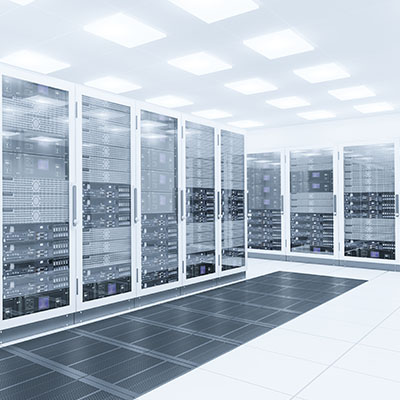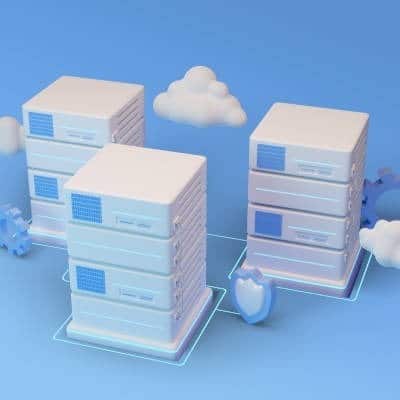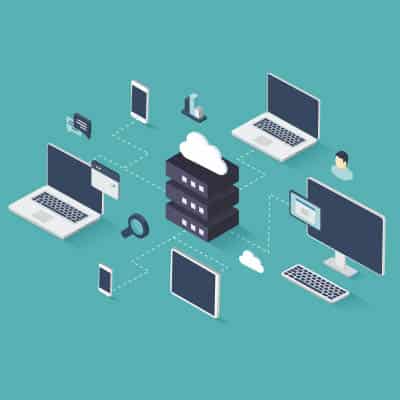We’ve been known to discuss business security from time to time, as it’s a pretty important concept for businesses and personal users to appreciate. Today, we wanted to discuss one specific element of cybersecurity that all businesses should have in place: antivirus.
The modern business depends on its data, so maintaining your infrastructure and keeping it healthy should be imperative to your success. Businesses generally host their data on servers, and keeping these complex pieces of technology safe, secure, and sound will take more effort than managing your average workstation. Follow these best practices and your job will be made much easier, though!
Email is a crucial part of any modern business, but it’s not always the most fun topic to cover. It’s more of a necessity than something super exciting, like machine learning or automation. Still, this does not make it any less important, so why don’t we discuss some of the ways you can make sure your organization’s email server is as secure as possible?
Defining Each On-Premise Solutions On-premise solutions are those that a business keeps in their office, on privately-owned and maintained servers. The actual makeup of these solutions varies from business to business, as it is dictated by each business’ needs. Cloud Solutions As you might imagine, cloud solutions are mostly those that are hosted off-premises. The cloud is a fanciful term to what amounts to data centers filled with servers, dedicated to providing invaluable services and resources to the businesses that rent them out. Let’s consider the positive aspects to each, as well as how these aspects measure up to the other’s less-positive features in comparison. Benefits of an On-Premise Solution One of the primary benefits of a business hosting its own server is the idea that control remains in the business’ hands. If a power outage—a basic and common enough business continuity threat—were to strike, a business hosting its own solutions on its own hardware could mitigate it effectively by turning to a backup power source until the outage was resolved. Comparatively, a business relying on cloud-hosted solutions also relies on the cloud provider to prevent downtime. In a similar vein, a business with control over its infrastructure is therefore in more control over its security. In theory, this means that a business can ensure its security is best suited for its environment and needs when its resources are kept in-house, close to the chest. Whether or not this is the case, however, also depends on the business. Benefits of a Cloud Solution Comparatively speaking, a cloud-hosted solution is going to be much more cost-effective for a business of any size to implement. For one, you aren’t obligated to pay for any more resources than you need in the moment, as you would when investing in your own hardware. This freedom gives you considerable flexibility to scale your use of the cloud as needed. In addition, you also don’t have any responsibilities directly associated with maintaining this hardware, eliminating those expenses as well. This also frees up your internal teams to focus on other priorities and projects. Of course, there are drawbacks to choosing exclusively between one or the other option. With on-premise servers, any upgrades are based on your schedule and your business’ financial capabilities, while cloud servers may not always be available (leading to downtime) and potential data security concerns are another concern that an on-premise server doesn’t have. This is why many businesses settle somewhere in the middle and elect to use both, in what is called a hybrid cloud, utilizing the best of both worlds. SRS Networks can help you determine which of these options is best for your business’ circumstances. Talk to one of our consultants today by calling (831) 758-3636.
Permission-Based Access Control You want to keep the number of people given access to your servers to a minimum. It isn’t as though most of your users really need access to it, so why leave it open to potential threats? By leveraging the capabilities that access control now has – such as permission-based privileges – you can minimize these potential threats by simply preventing many of these potential events from happening. Use Various Alarms On the topic of restricted access, you want to make sure that you are aware of those times that someone attempted to access your server room without the requisite permissions. This is why you should equip your server room with a system to alert you when someone has done just that. Beyond that, your servers need to be protected in terms of climate, as well. With the very real risk of fires in the server room, you need various fire alarms, extinguishers, and fire suppression systems. On the flip side, moisture is another issue for your infrastructure, so you should consider adding moisture-detection systems. Backup Power Supplies Sudden power loss can be a huge problem for workstations and other pieces of your infrastructure, including your servers. In order to protect them, you need to make sure that your servers are supported by a UPS (uninterruptible power supply) so you can avoid these problems if your business encounters a power-loss issue. Locks! Locks Everywhere! Naturally, you’ll want to lock the door to the server room – as established in the section on permission-based access control. However, you shouldn’t stop there. Why not secure the actual infrastructure in your server room itself? Otherwise, someone who gained access to the server room could pluck a hard drive out and make their escape with all the data that hard drive contained. This includes things like your cables, switches, and other pieces of infrastructure as well. Keep an Eye on It Touching back onto the importance of monitoring access to your server room, why not keep a record of who is accessing it, and when? Using your access control, monitor when a certain authentication was utilized, and compare that to your video records. You can also keep an eye on your servers themselves using the same concept. SRS Networks can help you to ensure your servers are optimized and secure. Reach out to us at (831) 758-3636 to learn more.
What You Need to Know While a small server may not look a lot different from the PC you already use, it is much different. Firstly, a server is typically a higher-powered computer that runs a specialized operating system designed to support multiple users. The way the server is configured suggests that it is designed to run multi-user applications. These include email, some type of messaging, print servers designed to manage company-wide print jobs, and customer relationship management (CRM). Since each user with access to the server can make it simple to share data, organizations that would like to see their line of business software integrate with their CRM will host both applications on one server. What exactly should you know before buying your small business’ first server? We’ll take a look into it now. Onsite vs. Cloud The first decision you have to make once you’ve decided to get a server is how you want that server deployed. The traditional way in which a business would deploy a server is by purchasing the hardware and finding a space in your place of business to store it. Another option is to rent server space in the cloud. Options like Amazon Web Services, Microsoft’s Windows Azure, and Rackspace Cloud Hosting offer several benefits. The most prevalent is that they transfer costs. With the purchase of a server, a company takes on the costs of the hardware, which are often substantial, they then deploy software, and have to pay to have their hardware managed. If the hardware costs aren’t enough, the maintenance costs can be multiple times that. With cloud computing, you can get a secure, reliable server that can be accessed from any place you have access to a high-speed Internet connection. This provides accessibility that many other servers don’t have, while paying per month rather than up front. Let’s make a list of some pros and cons: Onsite Server Pros: You have complete control over organizational data. You can alter storage types and amount at any time. Onsite backup is much easier. Data recovery from onsite backup is much faster. Cons: Capital costs of hardware. Costs of continued maintenance. Utility costs. Costs of physical security. Hardware is only marginally utilized. Open to several disastrous scenarios. Hosted Server Pros: Eliminate capital costs of buying and maintaining hardware. Mitigate server-based utility costs. Quickly scalable. Data and application redundancy built in. Cons: The need for stable and reliable bandwidth rises. Costs of bandwidth rise. Security can become an issue. Lose physical control over the management of the servers. As you can see there are positives and negatives about each computing strategy. One strategy that a lot of businesses are using nowadays is the establishment of a private cloud server. The private cloud server is a server that is hosted either onsite or in its own dedicated cloud space, and can come with a lot of the pros (and cons) listed above. It provides a company that needs to have control over the management of organizational data and applications to do so while also having the ability to access the data outside of the confines of its physical network. Regardless of what kind of server you are looking for the experts at SRS Networks can help. Find out more about your server options by […]
Profitability is less the measure of being able to turn a profit, and more the measure of how much profit you can make. For the successful small business, the integration of technology can dictate what kind of annual margins you are looking at. For the new company, however, it can be something even more critical: the difference between setting a course for success, or wallowing in failure. Today we analyze the cost difference between hosting your IT in-house, or choosing to host it in the cloud.







